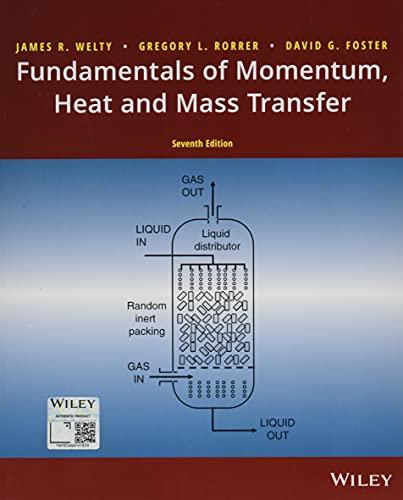Consider the hollow cylinder for drug delivery release shown in the figure below. The hollow center contains
Question:
Consider the hollow cylinder for drug delivery release shown in the figure below. The hollow center contains a lump of solid solute A (drug) in a liquid. Solute A dissolves in the liquid to a maximum concentration cA * = 0.05 m mole A/cm3 and then diffuses radially through the gel layer to the surrounding liquid, which is maintained at a constant concentration, cA∞ = 0.01 m mole A/cm3. In the present system, the effective diffusion coefficient of solute A in the gel layer is DAe = 1.2 10–5 cm2/s, the thickness of the gel layer (Ro – Ri) is 0.50 cm, the length is 1.5 cm, and the outer radius (Ro) is 0.75 cm. You may assume that the concentrations of solute A are dilute, the liquid within the hollow portion of the cylinder has constant concentration of cA*, and the edges of the cylinder are sealed. As long as the solid solute A inside the hollow cylinder has not completely dissolved away, the mass transfer process has a constant source and a constant sink with respect to solute A.
a. What are reason able boundary conditions for the mass transfer?
b. What are reasonable assumptions for the mass transfer process?
c. Estimate the total transfer rate of solute A exiting cylinder at r = Ro, WA, in units of m mole A/s. As part of your analysis, state the appropriately-simplified differential forms of the Flux Equation and the General Differential Equation for Mass Transfer.
d. Based on your result for part (c), if the initial loading of solid solute A within the hollow center is mAo = 0.20 m mole A, and the liquid within the hollow center is always at concentration cA *, how many hours will it take for the solid A to be completely dissolved?
Step by Step Answer:

Fundamentals Of Momentum Heat And Mass Transfer
ISBN: 9781119723547
7th Edition
Authors: James Welty, Gregory L. Rorrer, David G. Foster





